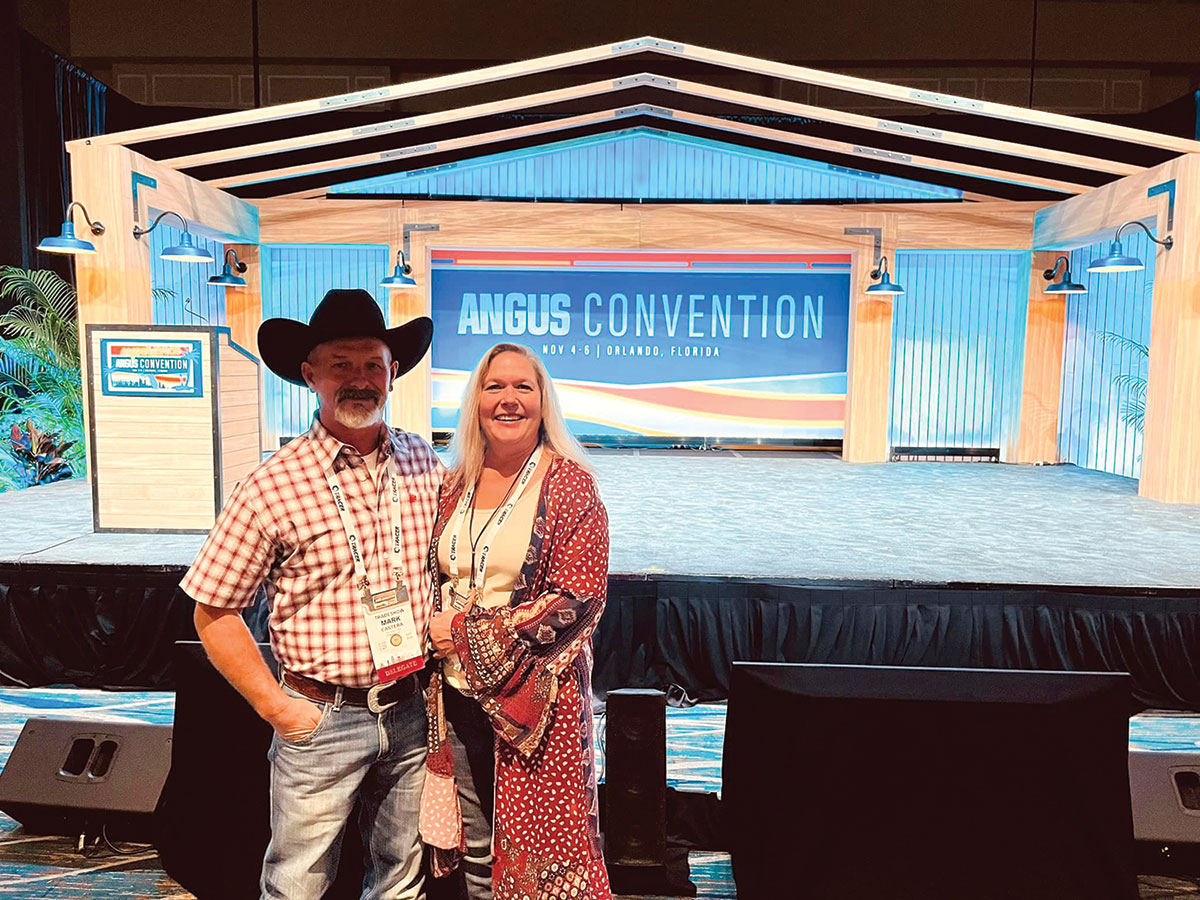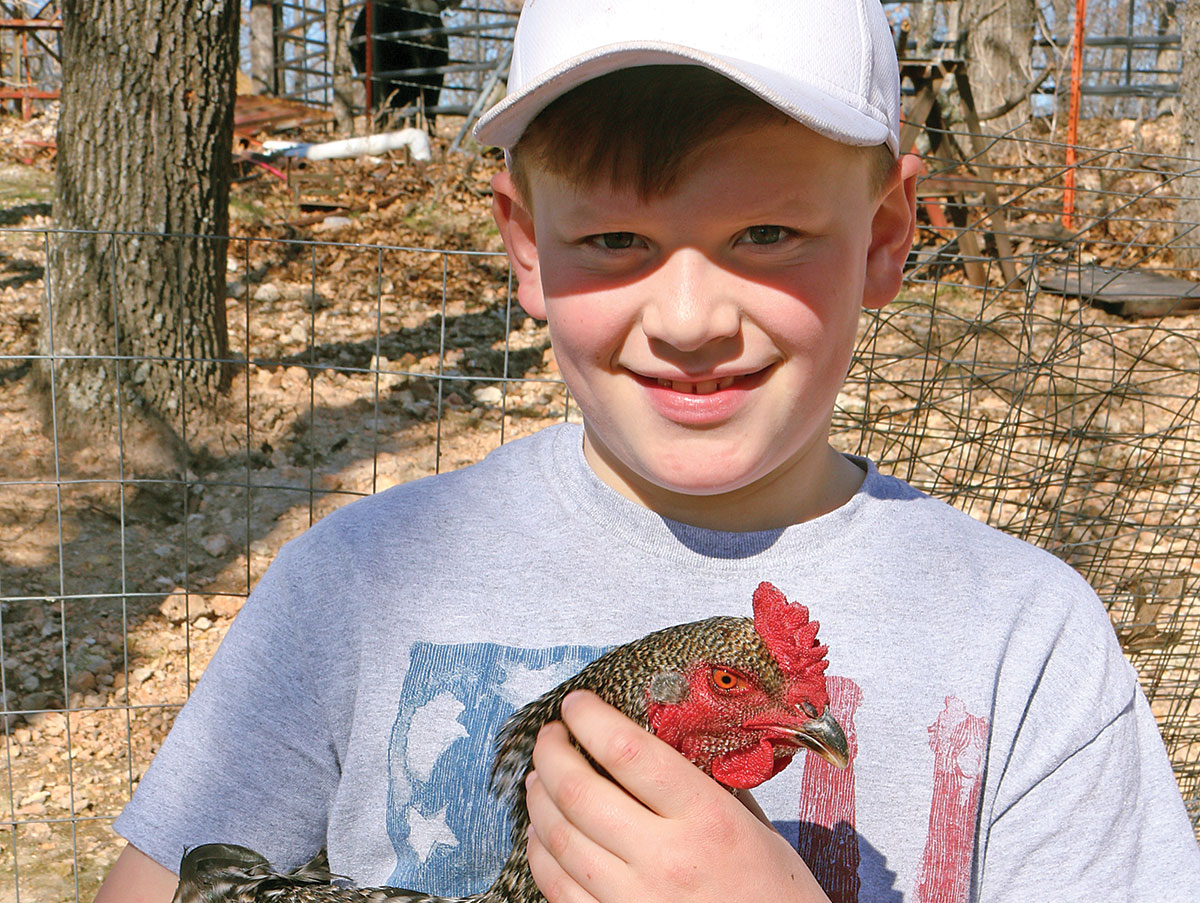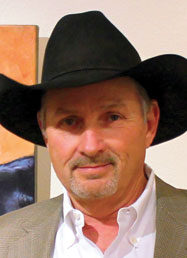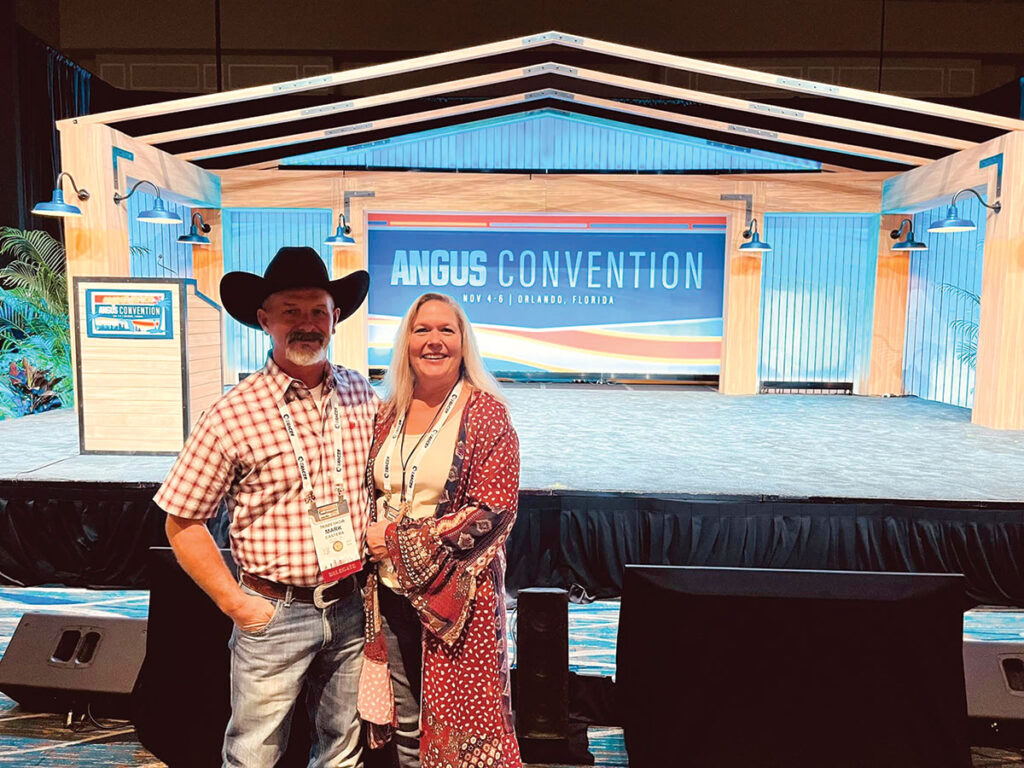
The Casteras say going to Angus has been more profitable for their farm
ROMANCE, ARK. – Mark Castera knew something didn’t make sense. When he took his cattle to sale more than a decade ago and saw the prices he was being offered for his red-hided cattle, the longtime cattleman could feel something was off.
“The guy that owned the sale barn, I was kind of friends somewhat with, and I had some commercials that was more red, red and white,” Mark said. “I carried some calves up there and got the price for them. I went to him and kidding, I told him, “Y’all don’t pay enough for these red ones.’ I said they got to be black. He tried to tell me he didn’t differentiate. It was all depending on what the calf looked like.”
Instead of just shaking it off and continuing on the same path he and his wife, Maybelle, had been on, Mark decided to do something about it.
“That year, I got a black Angus bull and put him on the cows. The following year I brought back all black calves and I brought him the sheet from the year prior,” Mark said. “I told him, ‘Now Ricky, you can’t tell me you don’t differentiate because right here it shows it,’ and he started grinning. At most places, it happens. I mean it’s all over the nation. The black hide has meaning. So with that, whenever I was going in to register, I decided I better go with the black hide and it was probably the smartest decision I made.”
That simple test was all the evidence Mark and Maybelle needed to transform Castera Farm into a registered black Angus provider in 2014.
“We have roughly around 60 in our herd,” Maybelle said. “We started out as a commercial and we decided we wanted to go into the black Angus, so we took our commercials and we used them as recips. We implanted embryos that are actually registered black Angus eggs. So that’s how we started our herd with the commercial and they had registered babies, so we just went from there and started growing.”
Since making the move to Angus, the Castera Farm has seen its sales grow each year.
“When we first started out, we had to learn the genetics and all the paperwork and pretty much learn how to do it,” Maybelle said. “Now we (had) four in the Northeast Arkansas Angus Association sale and we got four coming up in the Arkansas Angus Sale in December. So our numbers have grown, we’re able to put more in the production sales that we have in the state of Arkansas, and all of our bulls that we raise, we send to of the production sales in the state of Arkansas or sell privately.”
While it took them some time to learn the ins and outs of what goes into being certified, it has proven to be worth the time and investment.
“There’s Angus and then there’s Certified Angus Beef. To meet the Certified Angus Beef, they have to go through different testing and stuff to make sure the marbling’s there and they have to meet a grid score and some different stuff,” said Mark. “To sell certified Angus beef, you’ve got to go through more steps and that’s what the feed yards do is they go through the extra steps to try and get that because it brings a premium price over the rest.”
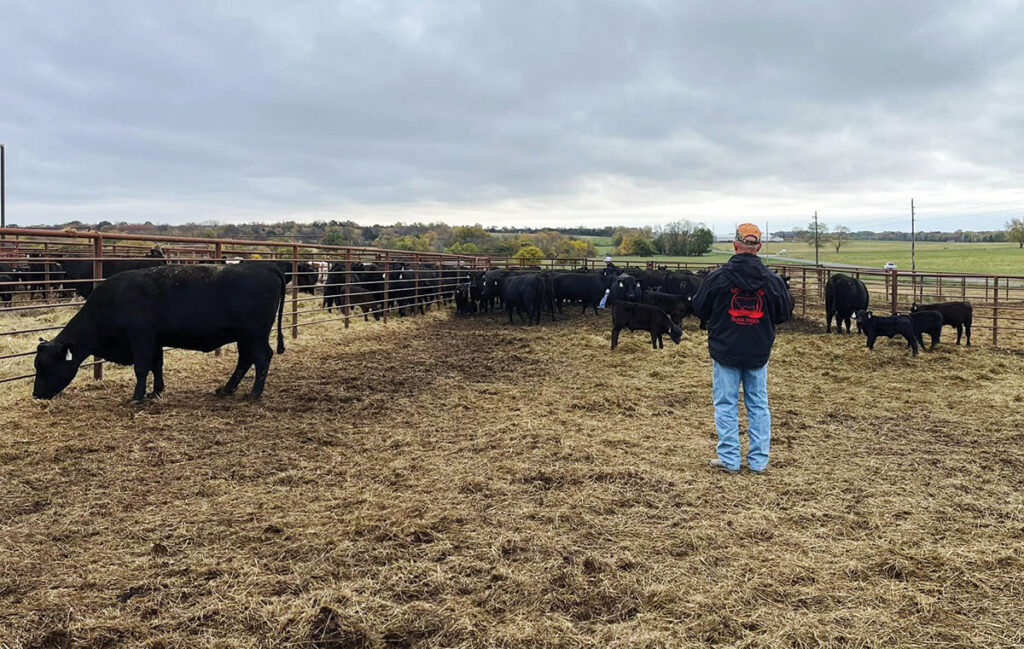
Since Mark and Maybelle began to run their ranch in 2003, they have watched as the cattle world has progressed steadily toward more and more Angus. Even before they became officers and board members in the Northeast Arkansas Angus Association and Arkansas Angus Association, they saw how dominant the breed was becoming.
“If you look at it much, cattle are originally red and white, and if you look at the majority of what you’ll see out there for sires, they have black sires where they’ve crossed them with Angus to make them black,” Mark said. “They’ve got to where they’re getting black hide animals, all these different breeds that used to be different colors, they’re starting to mix Angus in and they take what they call percentage registrations, and that way they can make them black. We just went to the annual (Angus Association) convention down in Florida and at the feedyards, 71 percent of the animals come through feed yards to feed everybody is black.”
The Castera Farm is on 60 acres of land in Romance (Ark.). Their 60 head of cattle doesn’t include the seven bulls they are developing for sale.
“We have no herd bull, so we do all artificial insemination on side selects, or we flush our girls, the ones that are top-notch, and make embryos that we still use,” Mark said. “We have five or six commercials that we use to carry those embryos.”
When it comes to their future, the Casteras, are split on whether they want to stay the same size or grow bigger. But because of the price of land and other necessities needed for growth, they are making do with what they have.
What Mark and Maybelle do agree on is doing whatever it takes to keep their operation going well past the time they retire.
“We are totally involved in our farm. We want it to grow and produce, plus with our five boys, we want something that we can pass on to the next generation and then they can pass on to their kids,” Maybelle said. “We have a couple grandsons and more on the way. So we can pass it on to those generations and so we have got to be involved and keep going. If you’re going to be small scale, you’ve got to have a sure enough top-notch product.”

